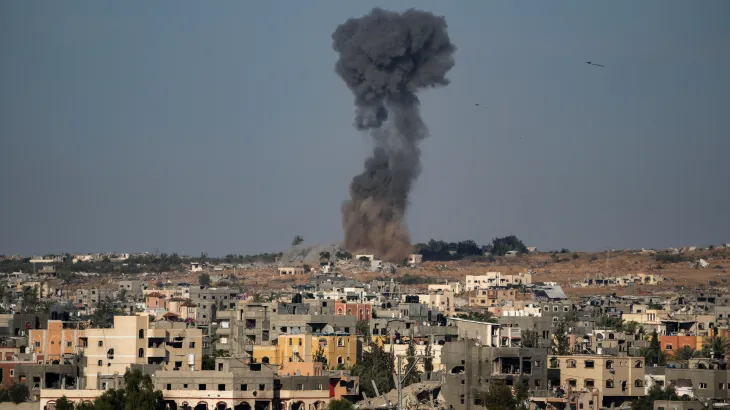
Hamas has expressed a positive outlook on President Joe Biden’s recent ceasefire proposal, raising hopes for an end to Israel’s prolonged military campaign in Gaza. The conflict, which has stretched over eight months, has claimed the lives of over 36,000 Palestinians, predominantly women and children, according to war monitors. This development marks a potential turning point in a brutal war that has wreaked havoc on both sides of the border.
The conflict has seen some of its most intense fighting in recent weeks, particularly in Jabalia, where three Hamas battalions have mounted a determined defense against a major three-week Israeli army operation. War monitors describe the clashes in Jabalia as among the most intense of the entire war, highlighting the ferocity and desperation on both sides.
The situation in southern Gaza, particularly in the city of Rafah, has become increasingly dire. The United Nations’ food agency reports that daily life has taken on an "apocalyptic" quality, with widespread devastation and a severe shortage of essential supplies. The humanitarian crisis has deepened, with residents struggling to find food, water, and medical supplies amidst the ongoing bombardment and ground operations.
In this context of intense suffering and destruction, President Biden's proposal for a ceasefire has been met with cautious optimism. Biden characterized the new Israeli proposal for a Gaza truce as “a roadmap to an enduring ceasefire and the release of all hostages.” He emphasized the urgent need to end the conflict, stating, “It’s time to end this war.”
The statistics of the conflict are stark and harrowing. Since October 7, Israel’s military operations in Gaza have resulted in at least 36,284 Palestinian deaths and 82,057 injuries. The toll on the Israeli side has also been significant, with at least 1,139 Israelis killed by Hamas’s attacks, and dozens still held captive in Gaza. The heavy casualties and continued captivity have only added to the urgency of finding a resolution.
Biden’s involvement and the positive reception from Hamas may provide a glimmer of hope for the beleaguered civilian populations on both sides. The proposal's success, however, will depend on numerous factors, including the willingness of both parties to adhere to the terms and the international community's support in enforcing and monitoring the ceasefire.
The positive response from Hamas could indicate a readiness to move towards negotiations, possibly influenced by the immense pressure from the humanitarian disaster unfolding in Gaza. International observers and human rights organizations have repeatedly called for an immediate halt to the hostilities, highlighting the disproportionate impact on civilians and the long-term consequences for the region’s stability.
As the world watches, the next steps taken by Israel, Hamas, and the international community will be crucial in determining whether this ceasefire proposal can pave the way for a lasting peace. The hope is that with Biden’s active engagement and Hamas’s positive reception, a framework for peace can be established, bringing an end to months of bloodshed and paving the way for reconstruction and reconciliation in Gaza.















